MAGNIFICENT Götterdämmerung at Longborough Festival Opera.
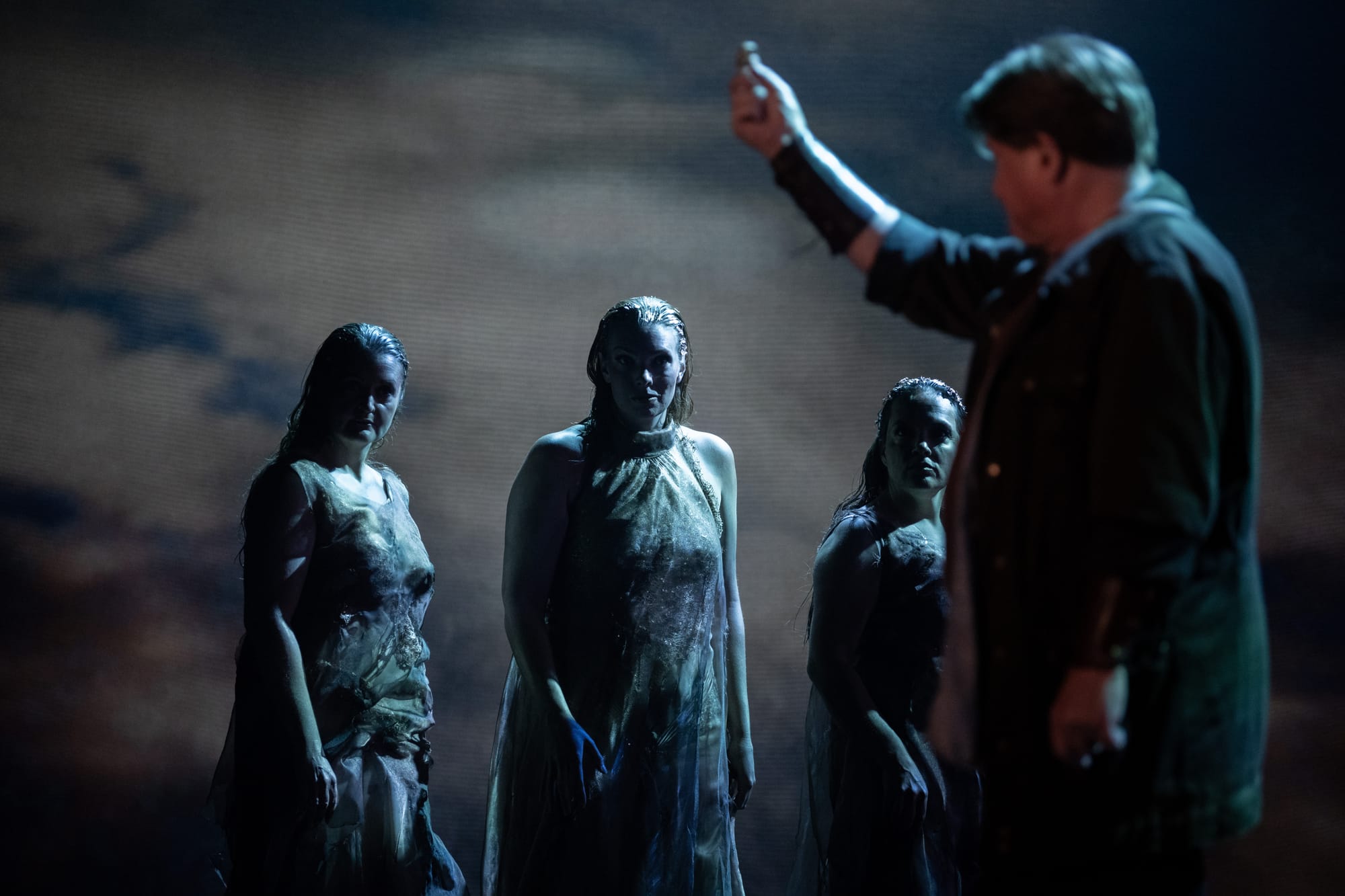
The new production of Wagner’s Götterdämmerung (Twilight of the Gods) at Longborough directed by Amy Lane and conducted by Anthony Negus is a triumph. It offers everything – atmosphere, coherence, profound understanding of the meaning and significance of the myth, fine acting, brilliant orchestral playing and superb singing. What more could one ask?
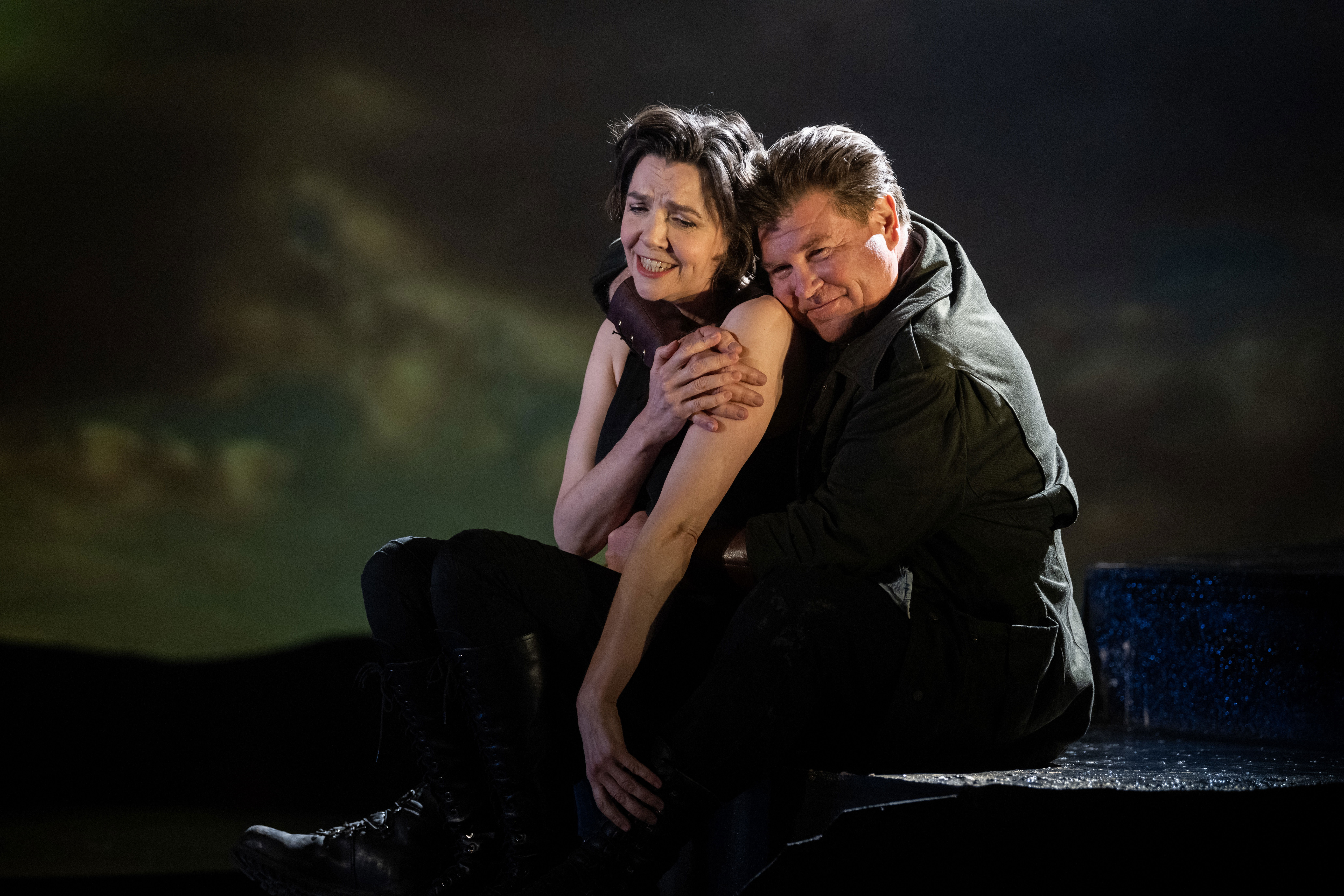
This production is a culmination of Longborough’s Ring cycle, which has been featuring at the festival for the past few years. It is an ambitious thing to take on at a private music festival in a rural - though idyllic - location and in a relatively small opera house. But the limitations of the stage were transcended by the use of projected backgrounds creating ever-changing colours and mysterious forms suggesting scenes and images of nature and the cosmos. And the singers were united by deep conviction.
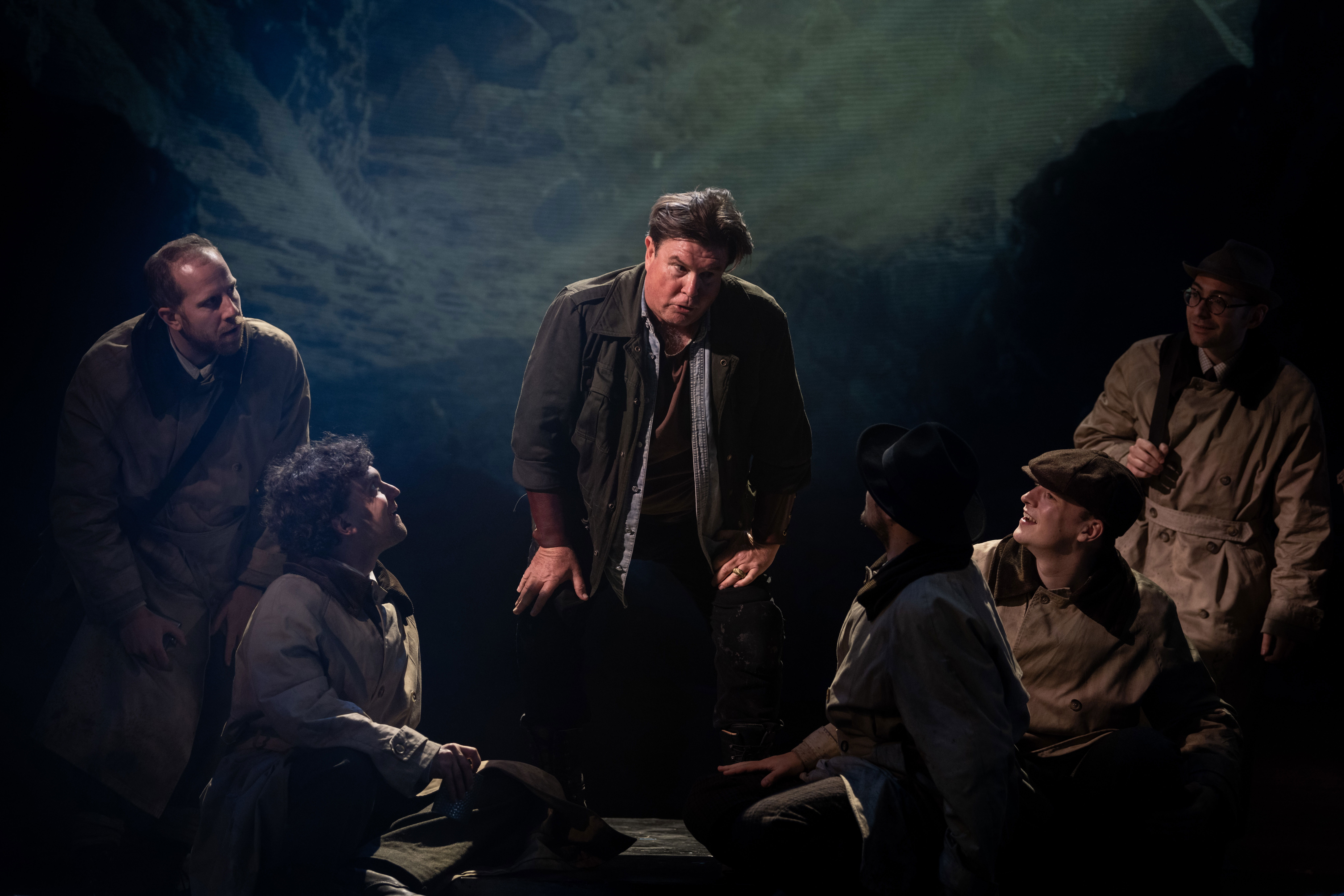
Götterdämmerung is about justice and injustice. In the worldview of the Norse mythology all wrongs must be atoned, all crimes paid for, however long it takes. The theft of a treasure or the theft of a life cannot be simply passed over and forgotten. There is always a reckoning, for humans and even for gods. Valhalla was built on theft and fraud, and this led to blood and strife. One day it must fall. Even the greatest heroes, like Siegfried, and the greatest heroines, like Brünnhilde (Lee Bisset), cannot defy the moral law. At the end of the last opera, Siegfried, they were at the pinnacle of earthly joy and triumph. With Siegfried’s quest fulfilled and his bride won, they are united in love. But Siegfried gives Brünnhilde the Ring from the dragon’s treasure as his love token – a Ring made from gold that was stolen and stained with blood. From that moment onwards, their love veers to destruction.
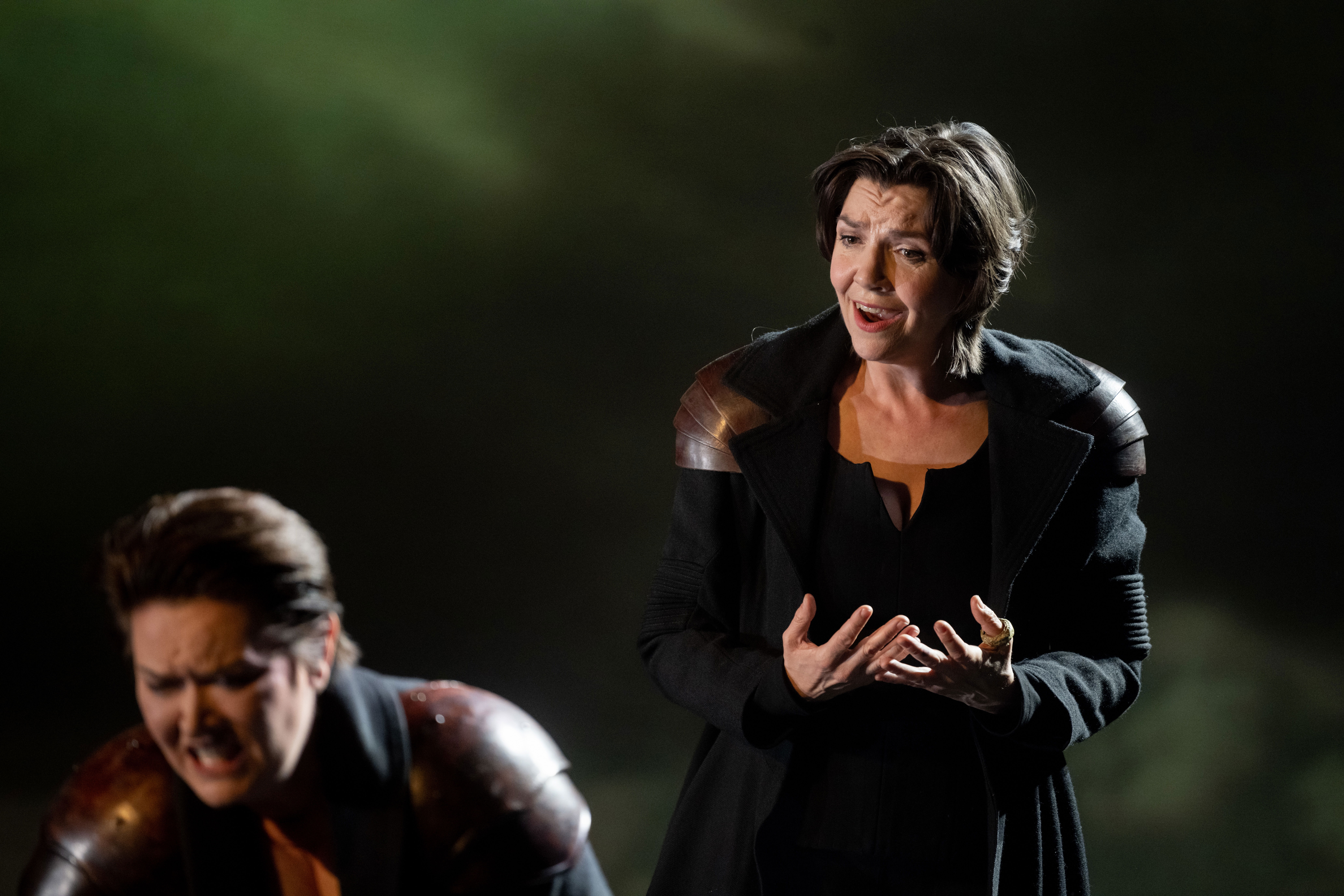
Fate is not ineluctable. Over and over again, the characters in the Ring have moral choices. Brünnhilde’s sister Valkyrie, Waltraute (Catherine Carby), comes to warn her that she must give up the Ring as it was unfairly obtained and will have a malign influence. Of course Brünnhilde cannot bear to do this as the Ring was used to seal her most sacred vows to Siegfried. She has a choice, and makes a tragic - but of course very human - decision. The Rhine Maidens meet Siegfried in the forest when he is out hunting and plead with him to return their stolen treasure. They warn him that if he does not, the consequences will be terrible. He replies that he won it by his own courageous deeds and he will not yield it to anybody. Besides, the Ring gives the wearer power over the whole world. What need he fear? Again it is a tragic, but very human, decision.
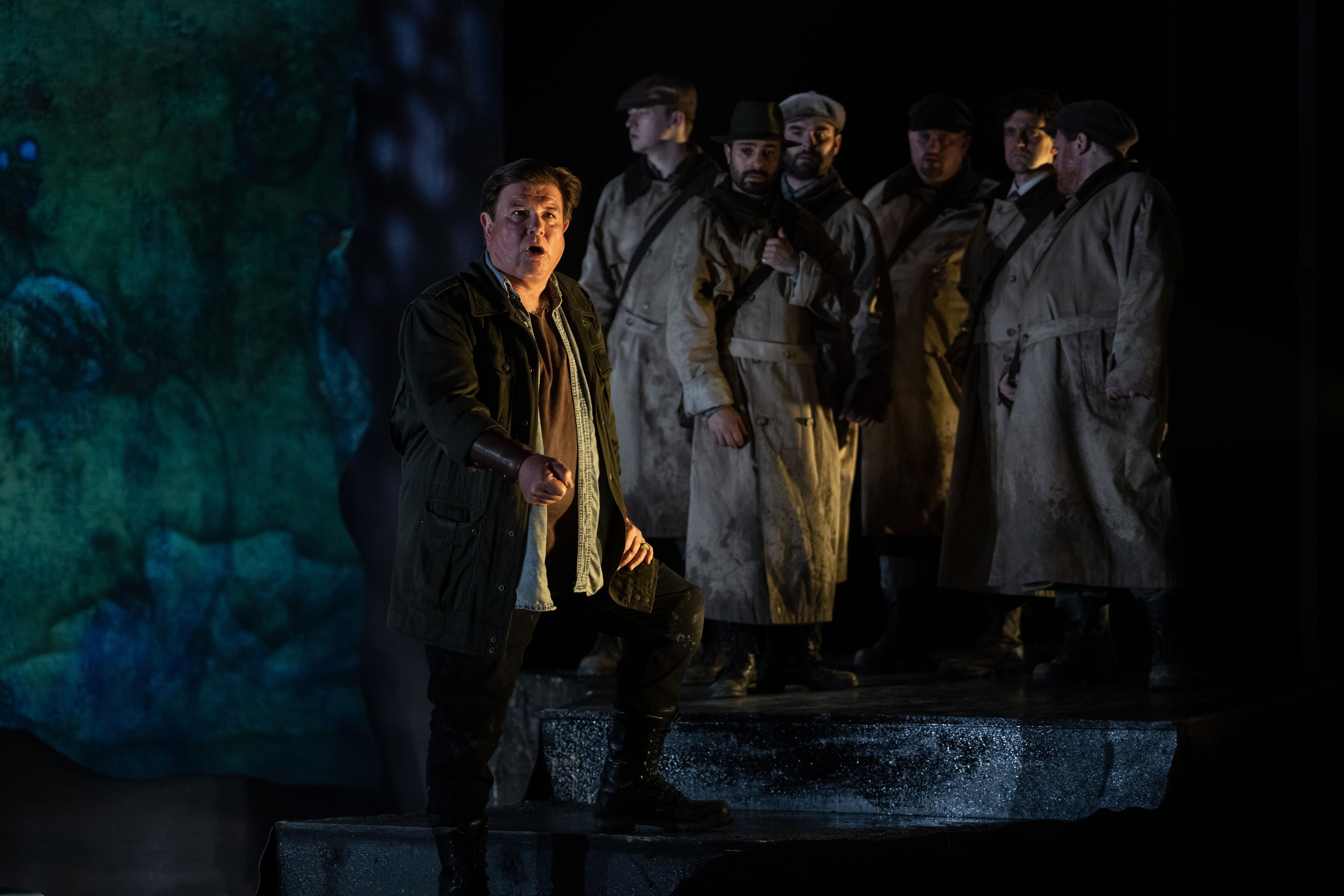
Siegfried is master of the world, invulnerable, but he is tricked into swearing an oath that gives Hagen's spear the power to kill him.
In the rôle of Siegfried, Bradley Daley is suitably ebullient, somewhat over-confident, passionate and a little boastful. His singing is energetic, powerful and glowing. As Brünnhilde, Lee Bisset is an absolute revelation. Her character is more rounded that than that of Siegfried, and she suffers more, believing that he has betrayed her, and fearing that she is going to be raped by Gunther. When she finally realizes that Siegfried has been drugged by Hagen, her vengefulness turns to a despair as she realizes she has been instrumental in his death. Bisset’s voice is absolutely glorious and her svelte form in a black military costume does much to update the image of this bold yet vulnerable heroine.
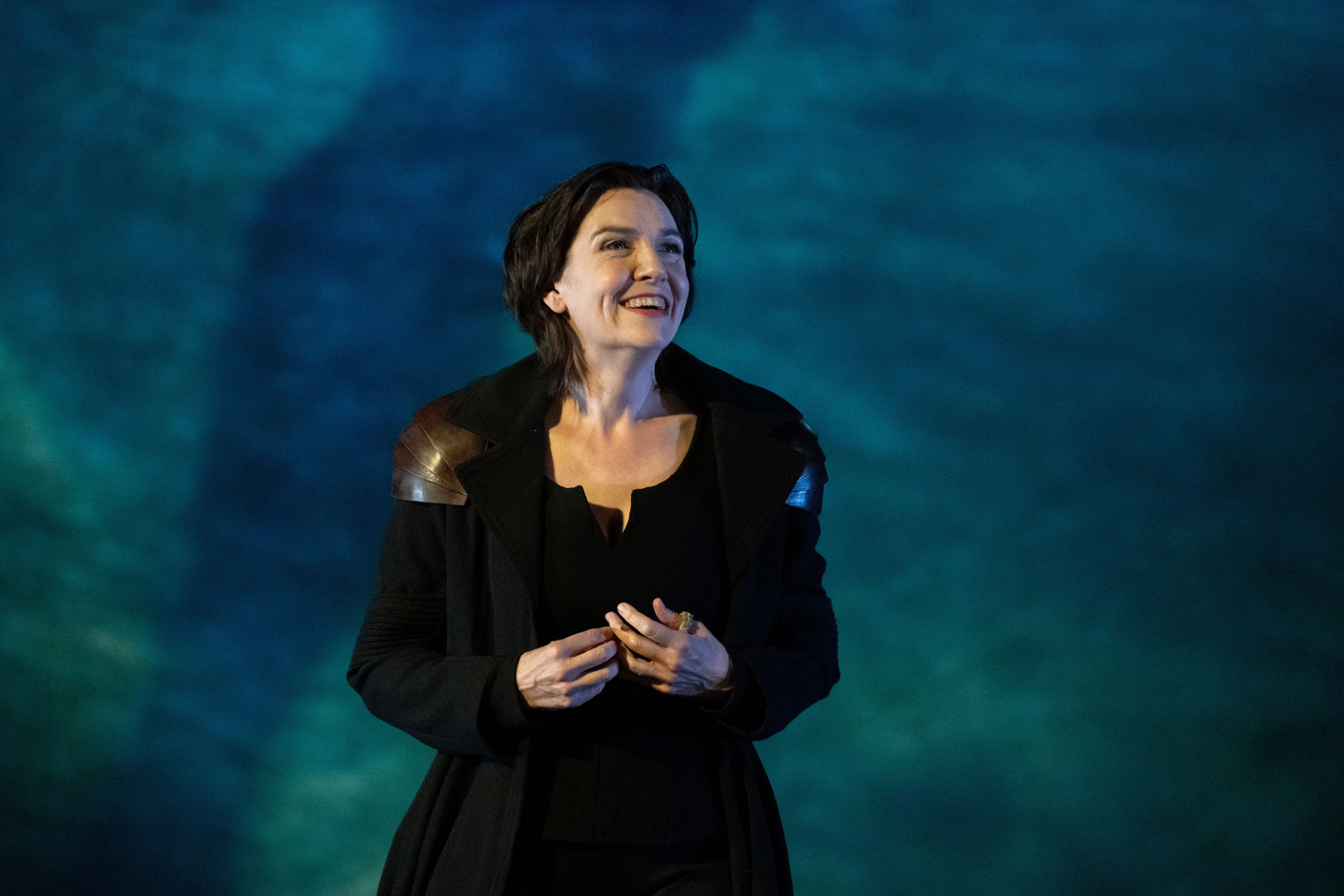
In this production, every character is fully explored: Hagen, Gunther and Gutrune each have their own tragedy and suffer in different ways. The cunning and evil Hagen is merely the instrument of fate: he has to behave as he does to precipitate the retribution decreed.
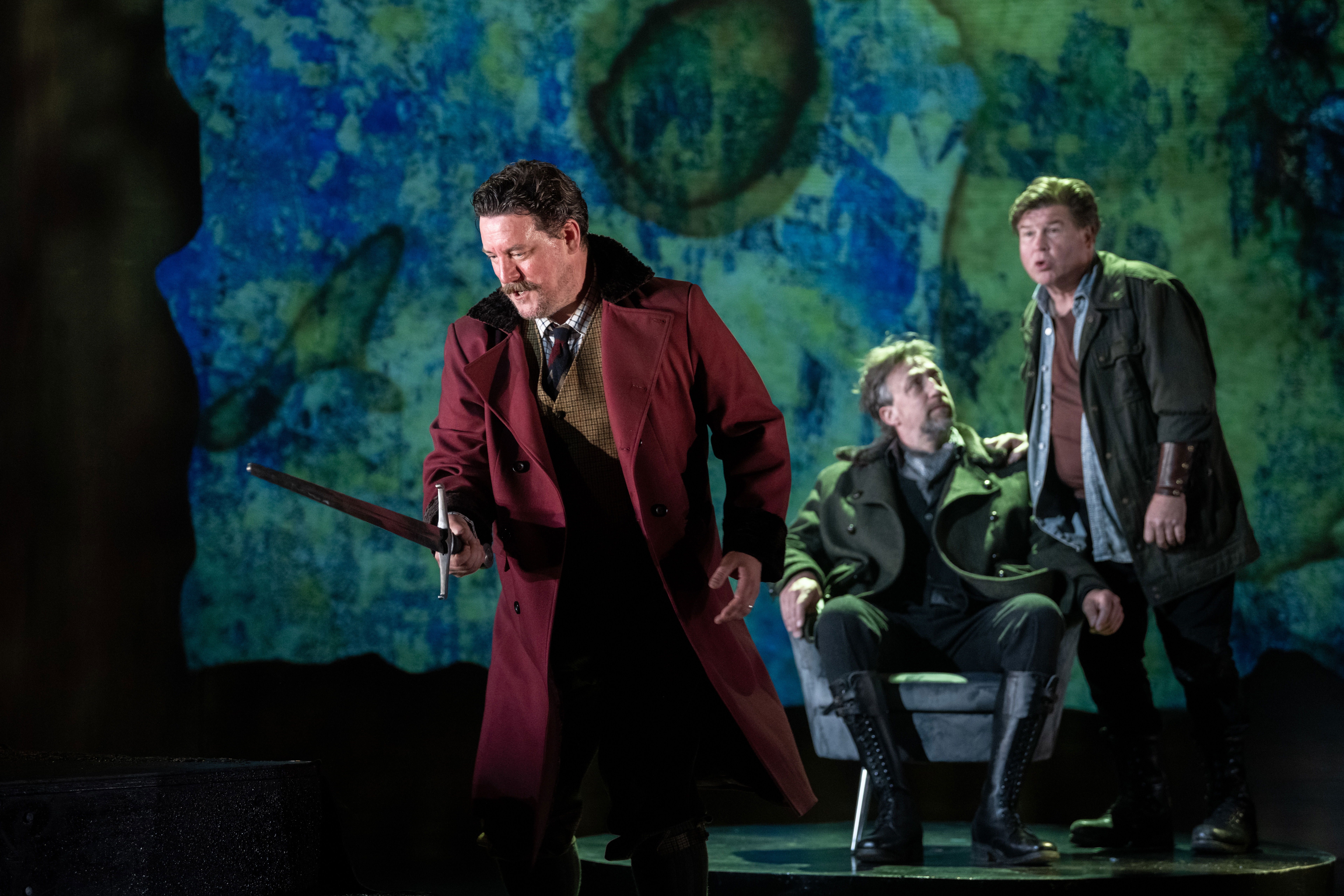
I found the scene between Alberich and Hagen, portrayed here as a morose alcoholic, deeply moving. Alberich begs for some sign of affection, calling him “my son” and repeatedly offers his hand to Hagen, who refuses to take it. Gunther (Benedict Nelson), a weak character but not an evil one, misled by Hagen (Julian Close) at every point, genuinely grieves over the dead body of Siegfried, as does Gutrune (Laure Meloy).
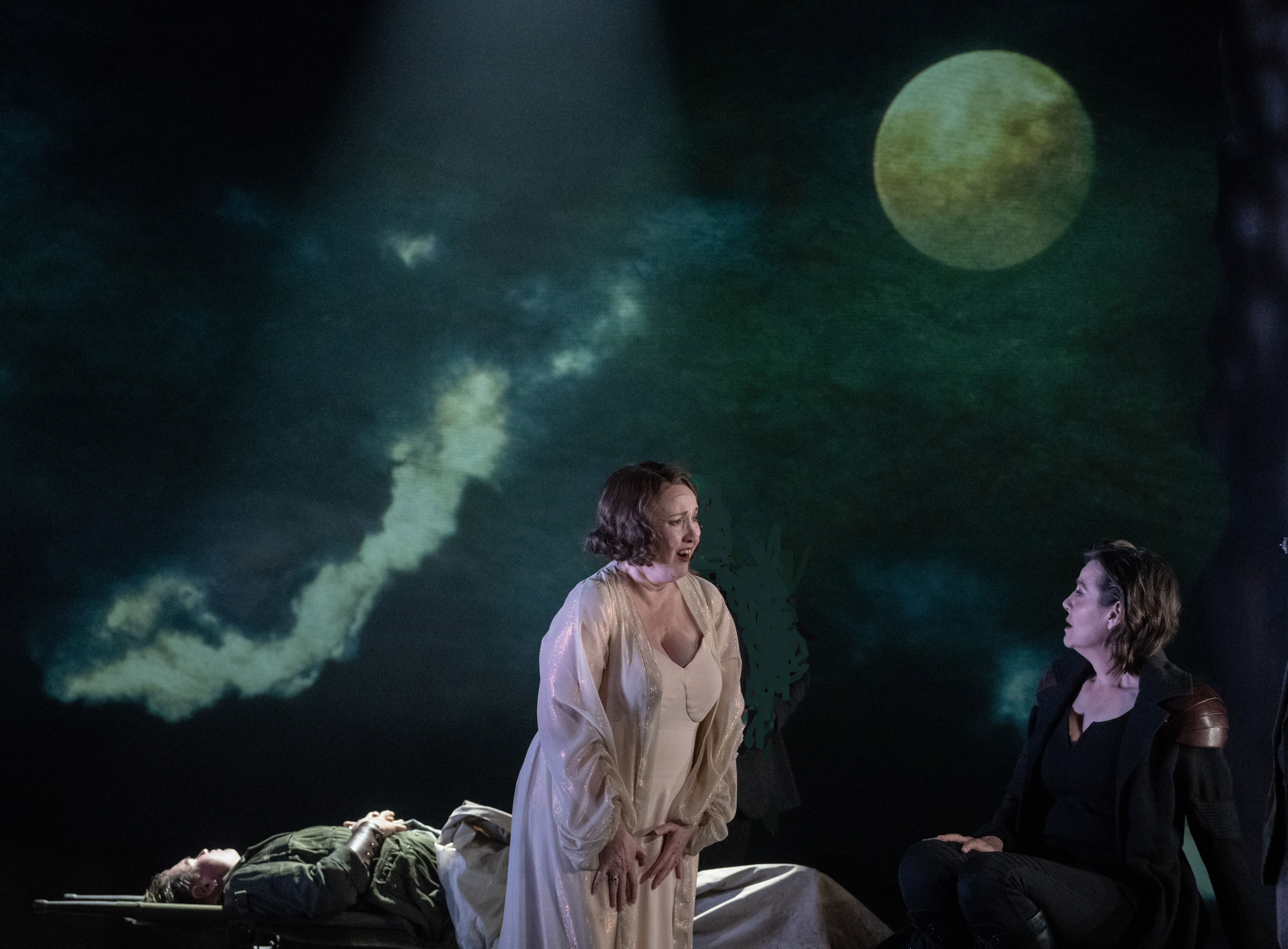
I would not hesitate to call this a great production. It is free of gimmicks. There are many possible allegorical interpretations of the Ring myth - political, spiritual, ecological, take your pick - but this production does not impose any single one. It just lets the drama unfold and the music enwrap you in its incomparable enchantment.
The Longborough season has only just begun, and three more operas are being performed - L'Elixir d'Amore, Orfeo and The Fairy Queen, so to snap up any remaining tickets, see their website:
https://lfo.org.uk/whats-on
Julia Gasper
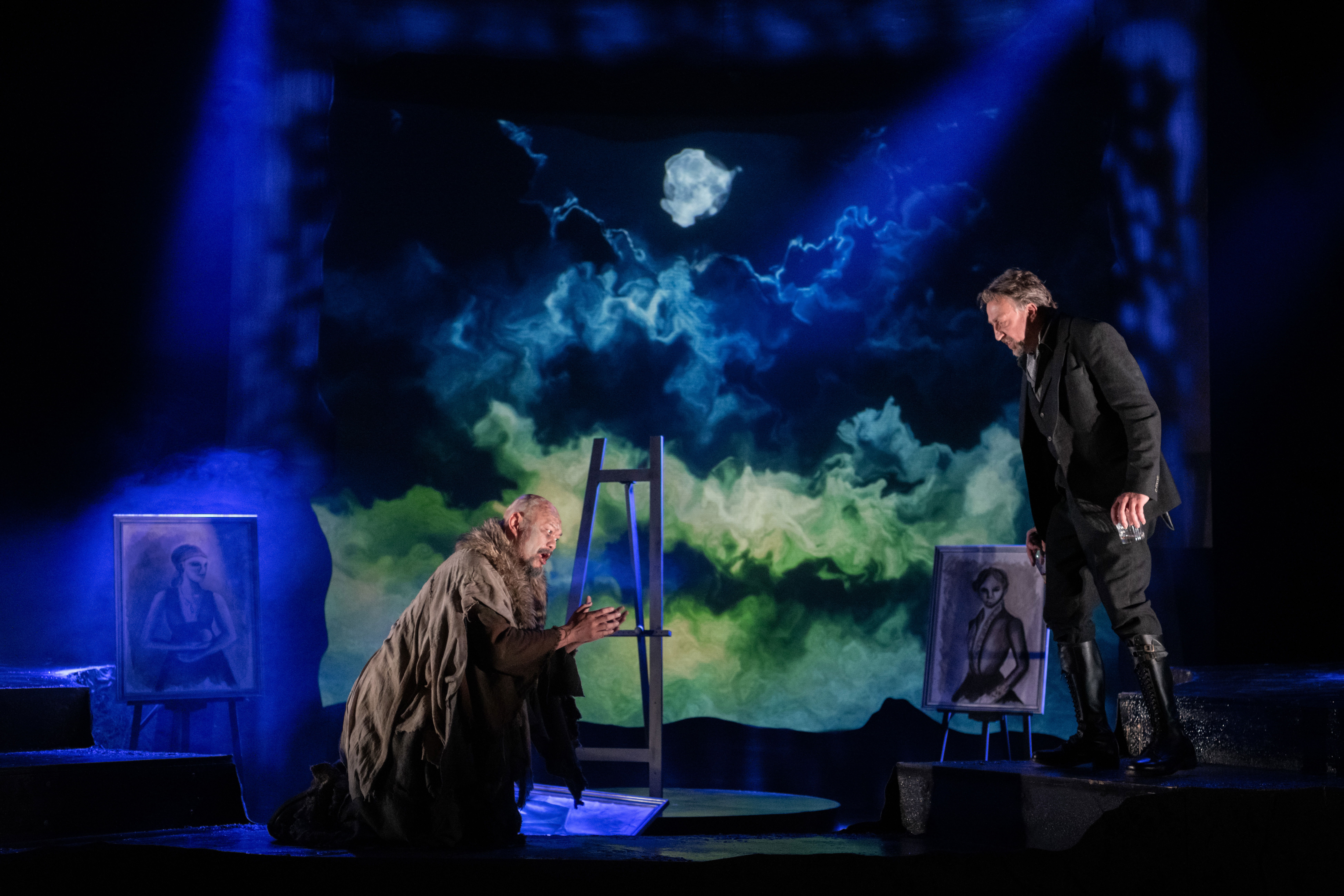
Photographs were taken by Matthew Williams-Ellis.
Longborough Festival Opera
New Banks Fee
Longborough
Moreton-in-Marsh
Gloucestershire
GL56 0QF